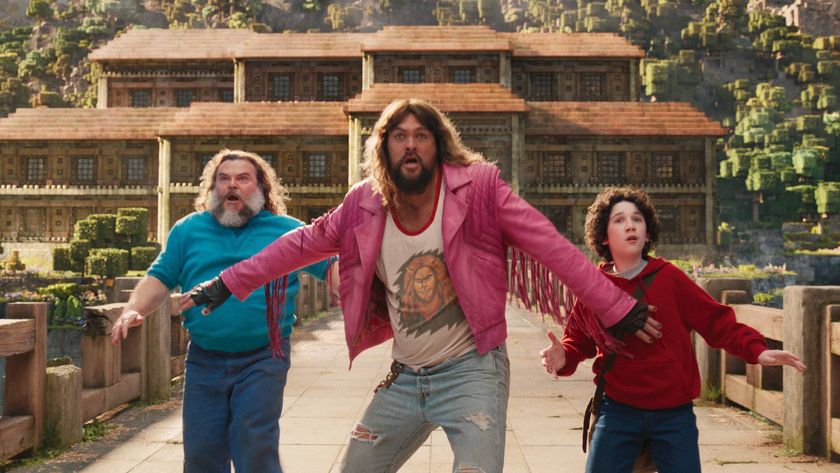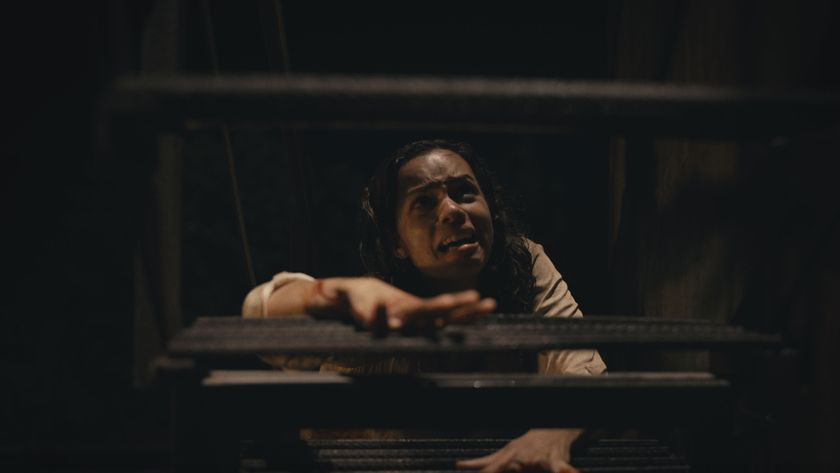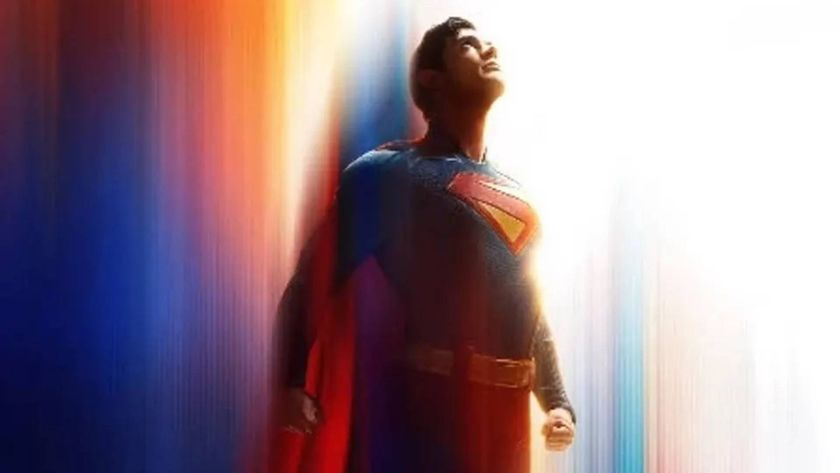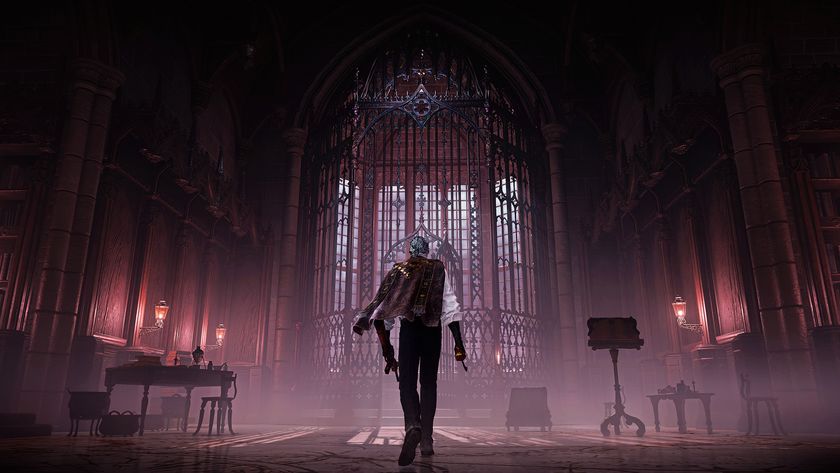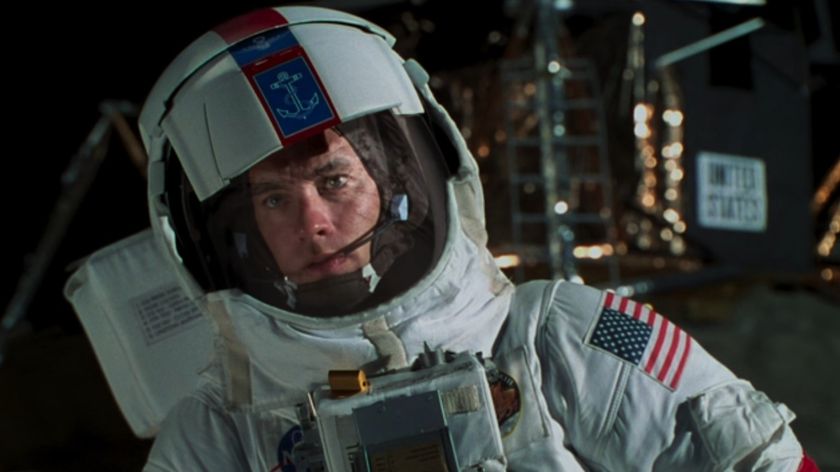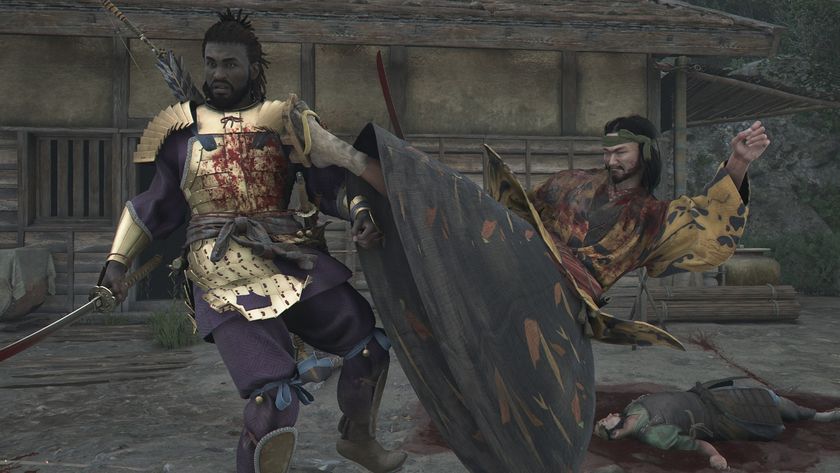Dustin Hoffman: Best Movie Roles
The Hoffmeister's greatest hits
The Graduate (1967)

The Role: Ben Braddock
Why It’s The Best: Hoffman’s first major role remains his most iconic. In a film stuffed full of timelessly cool wotsits – from that Simon and Garfunkel theme tune to Anne Bancroft as the object of Ben’s affection – Hoffman's Ben remains the naïve eye of the storm.
Iconic Moment: “Mrs Robinson, you’re trying to seduce me. Aren’t you?” Ben takes Mrs Robinson home from a party hosted by his parents. Is invited in for a drink. Then Mrs Robinson makes her intentions quite clear, as Ben fumbles about in shock.
Dustin Says: “[ Director Mike ] Nichols is very demanding. He took me aside one day when I was tired and probably not focusing well on the scene, looked deep inside my eyes and said, ‘You’re never going to get the chance to do this scene again as long as you live, and you’re going to see it one day up there on the screen.’”
Midnight Cowboy (1969)

The Role: Ratso Rizzo
Why It’s The Best: Dark and extreme, John Schlesinger’s film revolves around the friendships that are birthed out of the living in the filthy underbelly of New York.
As Ratso, Hoffman is grimy as the city he lives in, befriending male prostitute Joe (Jon Voight) and attempting to survive in the Big Apple. A new breed of cinema, its refusal to idealise the city marked it out as something fresh and innovative.
Iconic Moment: “I’m walking here!” Ratso and Joe walk through the city, only to have a near miss with an overenthusiastic taxi. Enraged, Ratso gives the cab’s hood a wallop.
Dustin Says: “ Midnight Cowboy was done on a low budget. You gotta have money to pay for a scene that includes a bunch of people on the street in midtown Manhattan.
“So Jon Voight and I were walking in regular traffic and being filmed by a camera hidden in a van across the street. That's a stolen shot. That was a cab that almost hit us.
“In my brain, I wanted to say, ‘We're making a movie here, asshole!’ But your brain knows that would ruin the take. So 'I'm walking here!' really means 'We're shooting a film here!'”
Little Big Man (1970)
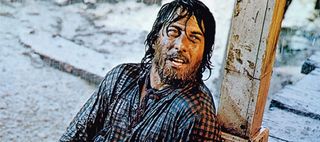
The Role: Jack Crabb
Why It’s The Best: An epic, wildly entertaining adaptation of Thomas Berger’s novel, Little Big Man is as funny as it is extravagant and moving.
Hoffman himself garnered himself an entry in the Guinness Book Of World Records after he portrayed a character as it aged from 17 to 121 – he earned the title Greatest Age Span Portrayed By A Movie Actor.
Iconic Moment: As George Armstrong Custer gathers his troops at Little Bighorn, Jack tricks him into a trap: “When they get done with you, there won’t be nothing left but a greasy spot… You go down there if you got the nerve.”
Straw Dogs (1971)
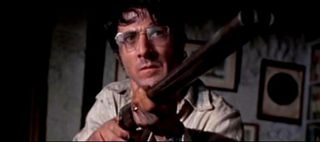
The Role: David Sumner
Why It’s The Best: Banned in the UK for years thanks to its controversial content – most notably a scene in which Susan George is raped in her home – Straw Dogs is considered one of director Sam Peckinpah’s finest films, and retains its raw strength to this day.
Hoffman nails David’s transformation from quiet, calm mathematician to crazed killer with all the control of a seasoned pro. A remake starring James Marsden is on the way…
Iconic Moment: All-out war erupts at the film’s climax, as Amy’s rapists lay siege to the Sumner house. In response, David takes up a gun and defends his home in the bloodiest way possible.
Dustin Says: “I thought Straw Dogs was interesting.”
Papillon (1973)
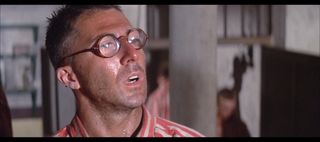
The Role: Louis Dega
Why It’s The Best: Despite being one of the most expensive movies made at the time of its release, with a budget of $12m, Papillon proved so popular that it earned double that back in its first year.
Starring opposite Steve McQueen’s titular criminal, Hoffman plays a fellow inmate at a hellish prison known as Hell’s Island. Together, they plot their escape. McQueen was nominated for a Golden Globe for his role.
Iconic Moment: Loads to choose from, though the jailbreak scene is a breakneck thrill ride of a sequence.
Dustin Says: “ Papillon is good — and one of the best things McQueen had done.”
Lenny (1974)

The Role: Lenny Bruce
Why It’s The Best: Hoffman’s third Oscar nomination found him recreating the life of comic performer Lenny Bruce, whose scathing wit in the ‘50s and ‘60s received an equally scathing backlash from his listeners.
Hoffman manages to get under the skin of his protagonist with skill and dexterity, succeeding in balancing the real man’s various characteristics – especially his own self-destruction after years of misunderstanding.
Iconic Moment: During a particularly emotionally charged performance , Lenny points out and parodies the use of derogatory slang when referring to members of other cultures and nations.
Dustin Says: “At first I turned the part down. I didn't think the script was strong enough and I wasn't sure I was the one to play the role.
“I read his autobiography. And I began to feel an affinity with him, a realisation that there was a lot of Lenny Bruce in me. My wife felt it, too. She kept saying, ‘Do it, do it. You're going to be able to bring a lot of yourself to the part.’ He was an observer; he watched people, watched how they acted and worked things out in his head.”
Sign up for the Total Film Newsletter
Bringing all the latest movie news, features, and reviews to your inbox
All The Presidents Men (1976)
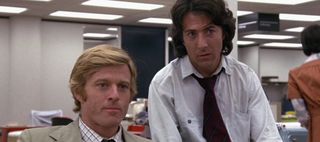
The Role: Carl Bernstein
Why It’s The Best: The first of two films written by William Goldman that Hoffman starred in (the other is coming up next), All The President’s Men relates how two journalists managed to bring down President Nixon despite his apparently untouchable status.
Bouncing off Robert Redford’s wary Woodward, Hoffman’s Bernstein is a fearless revolutionary. Together they make for an electric on-screen pairing.
Iconic Moment: Having met Deep Throat, Woodward worries that his and Bernstein’s “lives are in danger”. How does he let his buddy know? By typing a warning on a typewriter (ah, those were the days).
Dustin Says: “Usually, it's the character in a film that interests me. This time it's the whole subject that gets me. I love all that intrigue; Eric Ambler, but it's real. And it's sort of a good step after Lenny.
All The President's Men is important because nobody must be allowed to forget what happened under Nixon. Once the noise dies down, it could happen all over again.
“We almost had an invisible dictatorship. But it's also an exciting property and a good part! I'm afraid that's the real reason I'm doing it.”
Marathon Man (1976)
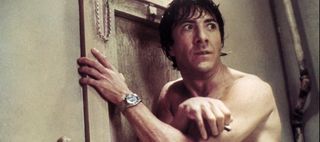
The Role: Babe
Why It’s The Best: The first theatrical release to use a steadicam, John Schlesinger’s adaptation of William Goldman’s novel is a paranoid thriller with real punch. Hoffman plays Babe, a history Ph D candidate and keen runner who finds himself swept up into a conspiracy that involves an exiled Nazi war criminal and stolen diamonds.
Hoffman reportedly stayed awake for two days in preparation for a scene in which his character has been awake for two days. Co-star Laurence Olivier infamously retorted “Have you ever tried acting?” after hearing the story.
Iconic Moment: “Is it safe?” The most infamous scene in the film involves Babe being tortured by a dentist who repeats that code question as Babe is subjected to unimaginable pain.
Dustin Says: “I told that story to Time magazine and then they reinterpreted it because it made a better story. The reason to stay up for two days wasn't just because the character stayed up two days. It was because, you know, I was partying, it was Studio 54.
“I was laughing, you know, talking to - I called him Lordage - talking to Lordage about this. We both laughed and he said, ‘Why don't you try acting?’ But there was irony there. So that's the spirit in which he said it. I think the story, in a sense, does a disservice to him because he was adventurous. You know, acting didn't have boundaries to him.”
Straight Time (1978)

The Role: Max Dembo
Why It’s The Best: After a failed attempt at going ‘straight’ after a stint in jail, Max Dembo finds himself back behind bars and under the rule of a power-hungry parole officer. When Dembo is released again, he assaults the officer, pinches his wheels and re-embraces a life of crime.
Hoffman originally set Straight Time up as a directing gig, but after a few days of shooting decided to hire Ula Grosbard instead.
Iconic Moment: Dembo and Jerry seize a jail at gunpoint and take home a nice big bundle of cash.
Dustin Says: “I like that movie. It's a true movie. It's as close to the reality of criminals that I'm aware of.
“Ex-convicts have said that that movie really gets it. I don't think of an audience reaction when I'm making a film. But having said that, I always have an audience that I'm pointing to when I'm making the film.”
Kramer vs. Kramer (1979)
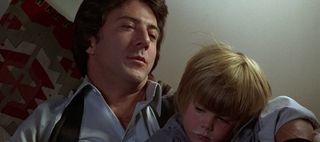
The Role: Ted Kramer
Why It’s The Best: A concept that appealed to Hoffman because he was going through his own divorce at the time, Kramer vs. Kramer is an emotional rollercoaster that beats with a quiet, aching heart.
As Ted, Hoffman is a father who neglects his son, but is forced to attempt to raise him when his wife Joanna (Meryl Streep) walks out on them both.
Iconic Moment: During the film’s climactic custody hearing, both Ted and Joanna give emotional testimonials. In the end, Joanna emerges victorious – but she realises that their son would be happier with Ted.
Dustin Says: “I was getting divorced. I waited until I was 31 before I got married and I never thought this would happen. There were kids involved. I said to the director, ‘I have never read anything close to what I am witnessing emotionally - I really want to tell this story.’
“We sat in a hotel room for four months and we came up with the thread, which is the most painful part of divorce - when both parties want to cut that bond and can't.
Meryl Streep is an ox when it comes to acting. She eats words for breakfast. Working with her is like playing tennis with Chris Evert - she keeps trying to hit the perfect ball.”
Josh Winning has worn a lot of hats over the years. Contributing Editor at Total Film, writer for SFX, and senior film writer at the Radio Times. Josh has also penned a novel about mysteries and monsters, is the co-host of a movie podcast, and has a library of pretty phenomenal stories from visiting some of the biggest TV and film sets in the world. He would also like you to know that he "lives for cat videos..." Don't we all, Josh. Don't we all.
